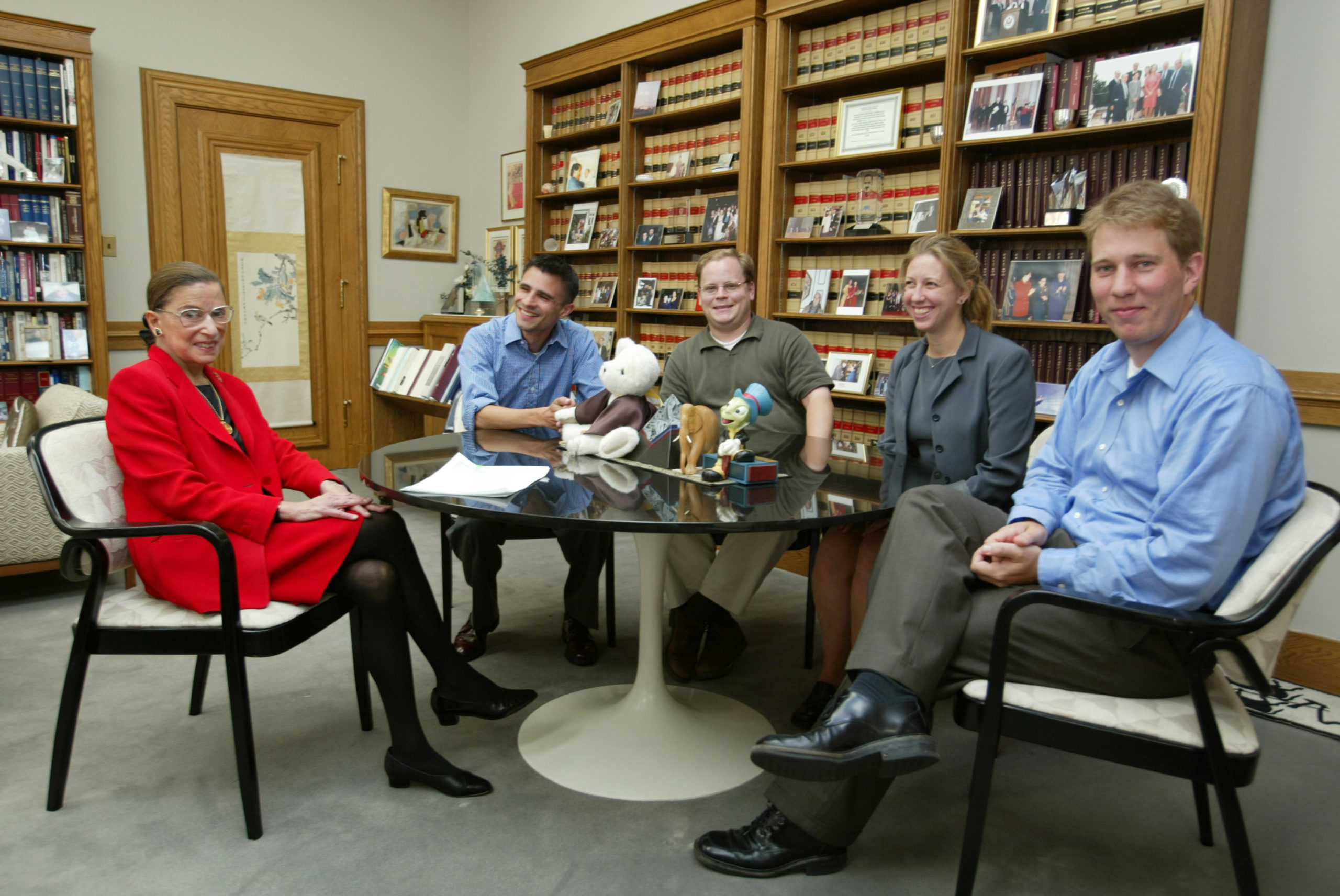Late last month, in his first appearance since the publication of the Supreme Court opinion that overturned Roe v. Wade, Justice Samuel Alito debuted the worst Oscars host audition tape you will ever lay eyes on. In an address for (what else?) the annual Notre Dame Religious Liberty Summit in Rome, the tuxedo-clad and alarmingly-bearded justice ticked off a few names of world leaders who had expressed dismay over his opinion in Dobbs v. Jackson Women’s Health Organization: Prince Harry, Canadian Prime Minister Justin Trudeau, and French President Emmanuel Macron. It was an “honor,” Alito said, to have earned their criticism.
His voice quivered a little, but when he arrived at recently-ousted British Prime Minister Boris Johnson, who called Dobbs a “big step backwards,” Alito delivered the punchline with gusto: “He paid the price.”
Clip via YouTube
Do you get it? The joke is that because Johnson criticized the Court’s decision to take away the right to bodily autonomy from millions of people, he lost his job in politics. Fun stuff!
This speech, in which Alito solemnly characterized religious liberty as “under attack,” is not the first time he has been—and this is a legal term of art—an embarrassing whiny baby in public. In his keynote address at the annual Federalist Society convention in 2020, Alito embarked on a meandering recitation of complaints that would not sound out of place in your average Donald Trump call-in appearance on Fox & Friends. At various points, he bemoaned the persecution of conservatives on law school campuses, the “previously unimaginable restrictions on individual liberty” imposed during the COVID-19 pandemic, and the very existence of Democratic senators who had the temerity to hold political views different from his.
Here is Alito during that speech, mourning the looming death of free speech at the hands of the Court’s decision protecting same-sex marriage in Obergefell v. Hodges (???), looking for all the world like a Bigoted Mr. Rogers being held hostage in a dentist’s office.
Clip via YouTube
Alito has also proven himself as obsessed with criticisms from commentators as he is with those from foreign heads of state. Last year, after The Atlantic’s Adam Serwer wrote that the Court’s opinion in Whole Woman’s Health v. Jackson had “nullified” Roe in Texas, Alito quoted Serwer at length before excoriating this charge as “false and inflammatory.” “We did no such thing, and we said so expressly in our order,” Alito huffed before another seal-clapping audience at the University of Notre Dame. (He also used some of his allotted time to dispute the notion that the Court is a “dangerous cabal,” which, as any PR professional will attest, is a sure sign that your messaging efforts are going great.)
Alito’s seamless assimilation into standard-issue grievance politics is a symptom of the pure, uncut reactionary nature of modern conservatism, which is shaped less by a commitment to any particular policy goal than by an insatiable desire to trigger some libs. The smirking triumph with which he uncorks the Boris Johnson Dunk, as Serwer among others noted, is the surest sign yet that Alito is an inveterate Twitter name-searcher who spends an unhealthy fraction of his waking hours scrolling the timeline and getting upset. (Sam, since I assume you are reading this on a lurker handle, please understand that I will not rest until I find it.)
There is an alternate universe in which Alito’s passion for posting leads him to skip law school altogether and enjoy a successful career in right-wing media, eventually assuming his final form as Bill O’Reilly But With Fewer Sexual Misconduct Allegations, sneering about pronouns and warning Boomers of the dangers of creeping socialism every weeknight at 8. The two men even kind of resemble each other, inasmuch as they are both older white men who always look terrified that you’re about to find the cursed portraits of themselves that they locked away in the attic many years ago.
On a Court controlled by six reactionary conservatives, Alito has his pick of culture wars to fight next: the rollback of affirmative action, the end of the administrative state, the undoing of democratic elections, and so on. Whatever he picks, though, you can count on two things: The opinion he writes is going to be a lazy, incoherent mess, and afterwards, he’s going to have plenty of shitty jokes about it.
As always, you can find us at ballsandstrikes.org, or follow us on Twitter @ballsstrikes, or get in touch via [email protected]. Thanks for reading.
This Week In Balls & Strikes
Meet the Trump Judges Making Rank Transphobia the Law of the Land, Lisa Needham
The Biden administration keeps working to enact legal protections for trans Americans. Trump judges keep gleefully stuffing those protections in the garbage.
A Brief Guide to Clarence Thomas’s Insane Establishment Clause Jurisprudence, Peter Shamshiri
The Supreme Court’s conservatives have been chipping away at the Establishment Clause for years. Clarence Thomas wants to blow it up.
The Decline and Fall of John Yoo, James LaRock
The conservative legal movement’s favorite torture enthusiast has been reduced to taking unearned victory laps over the Supreme Court’s COVID-19 jurisprudence.
This Week In Other Stuff We Appreciated
The Next Big Threat to American Democracy Is Headed to the Supreme Court, Matt Ford, The New Republic
How the Court’s conservatives might dream the “independent state legislature theory” into existence.
The Kansas Abortion Vote Sends a Powerful Message to the Supreme Court, David Von Drehle, The Washington Post
Is the state’s rejection of an anti-choice constitutional amendment a preview of the GOP’s future?
What Democrats Should (But Probably Won’t) Learn From the Kansas Abortion Victory, Natasha Lennard, The Intercept
Perhaps supporting good, popular politics would be a prudent strategy for the party!
The One Thing People Can Do to Keep Anyone Who Has an Abortion Out of Prison, Jeffrey Stein, Slate
Many people are talking about jury nullification, and we’re going to look very strongly at bringing it back.
This Week In Obscure Photos of Supreme Court Justices On Getty Images


